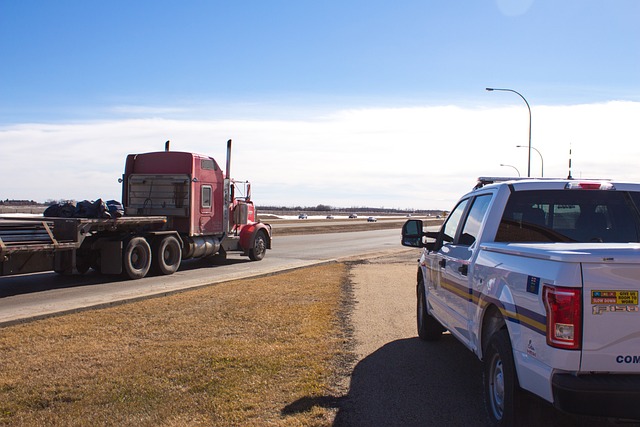Every fleet, be it passenger or goods-oriented, requires custom insurance solutions tailored to its unique operational needs. Key considerations include vehicle types, usage patterns, and operating environments. Robust cargo protection plans are vital for valuable or perishable goods, addressing potential risks like theft, damage, or weather incidents. Regular policy reviews and updates ensure ongoing protection against emerging threats, with assessments focusing on current coverage, gap identification, and tailored coverage based on vehicle age, condition, and cargo sensitivity. Proactive management involves evaluating security measures, storage conditions, and transit risks to select suitable coverage options, fostering a culture of safety and financial stability in today's dynamic business environment.
In today’s dynamic business landscape, proactive fleet insurance management is key to operational efficiency. This article guides you through crafting robust strategies for your fleet’s safety and financial protection. We explore critical aspects such as understanding unique risk profiles, assessing current coverage gaps, and designing comprehensive cargo protection plans. By regularly reviewing and adjusting policies, you ensure your fleet remains insured against evolving risks. Embrace these practices to safeguard your assets and maintain uninterrupted operations.
Understanding Your Fleet's Unique Risks and Needs

Every fleet, whether it transports passengers or goods, faces distinct risks and challenges that demand tailored insurance solutions. What works for one fleet might not be suitable for another, emphasizing the need to understand your specific operational needs. This involves gauging the type of vehicles in your fleet, their usage patterns, and the environments they operate in. For instance, a fleet specializing in long-haul cargo transport faces different risks than local passenger shuttle services.
One crucial aspect is ensuring adequate cargo protection plans. This is especially vital for businesses carrying valuable or perishable goods. Understanding potential risks like theft, damage during transit, or weather-related incidents allows insurers to craft policies that offer the right level of coverage. Proactive planning involves regular reviews and updates to these plans as your fleet grows or operational scenarios evolve, ensuring you stay protected against emerging threats.
Assessing Current Insurance Coverage: Gaps and Weaknesses

When evaluating your fleet insurance, the first step is a thorough assessment of your current coverage. This involves scrutinizing every aspect of your policy, from liability to collision, and considering specific needs like cargo protection plans. Identify any gaps or weaknesses in your existing coverage by comparing it to industry standards and your business’s unique risk profile. For instance, while general liability might be adequate for routine operations, do you need enhanced cargo protection plans if your fleet transports valuable goods? Understanding these areas of potential weakness is crucial for developing a proactive approach to insurance management.
This assessment should also factor in the age and condition of your vehicles, as older or high-mileage fleets may require specialized coverage. By identifying these gaps, you can work with insurance providers to tailor policies that offer comprehensive protection, ensuring your business remains shielded against potential risks and financial losses.
Crafting Comprehensive Cargo Protection Plans

Crafting robust cargo protection plans is a strategic move for any fleet manager aiming to mitigate risks and ensure optimal insurance coverage. These plans go beyond basic liability insurance, addressing the unique needs of various cargo types and transportation methods. By evaluating the value and sensitivity of each shipment, fleet managers can tailor insurance policies to cover potential losses or damages. This proactive approach involves assessing factors like cargo security measures, storage conditions, and transit risks, enabling businesses to choose appropriate coverage options such as comprehensive cargo insurance or specific perils coverage.
Comprehensive cargo protection plans require a deep understanding of the goods being transported. It includes implementing robust security protocols, such as GPS tracking, secure loading and unloading procedures, and controlled access to vehicles. Additionally, monitoring weather conditions and route planning to avoid high-risk areas can significantly reduce potential losses. Regular reviews and updates to these plans are essential, especially with changing transportation landscapes and evolving cargo profiles.
Regular Review and Adjustment for Ever-Changing Landscape

In today’s dynamic business environment, where risks and regulations are ever-evolving, regularly reviewing and adjusting your fleet insurance coverage is paramount. This proactive approach ensures that your cargo protection plans remain robust and aligned with your operations. As new threats emerge, such as cyberattacks or natural disasters, and industry standards change, it’s crucial to stay ahead of the curve. A comprehensive review process involves evaluating your current policies, identifying gaps, and understanding emerging trends in the insurance sector. By doing so, you can make informed decisions about enhancing your fleet’s protection.
Staying agile allows for swift responses when unforeseen circumstances arise. For instance, if your business expands into new territories with distinct legal frameworks, you’ll want to ensure that your insurance policies comply with local regulations. Regular adjustments also enable you to benefit from improved risk management strategies and potentially lower premiums. This proactive mindset not only safeguards your valuable cargo but also fosters a culture of safety and financial stability within your fleet operations.
By understanding your fleet’s distinct risks, regularly reviewing insurance policies, and implementing comprehensive cargo protection plans, you can ensure optimal coverage. Stay ahead of the ever-changing landscape by adjusting your strategies accordingly, ultimately safeguarding your assets and business interests. Effective fleet management includes proactive measures to mitigate potential losses, making it a vital aspect of successful transportation operations.
